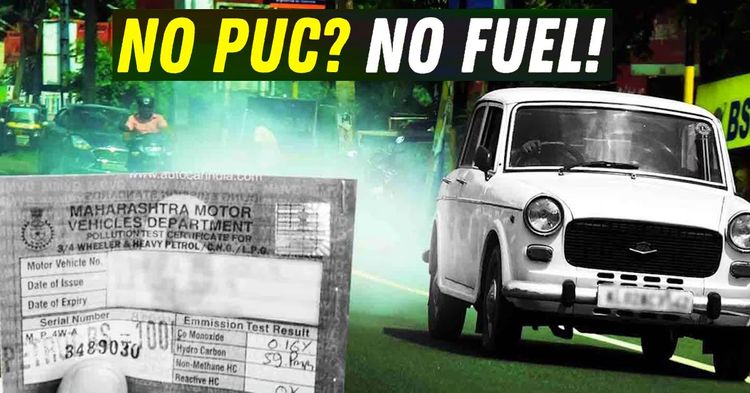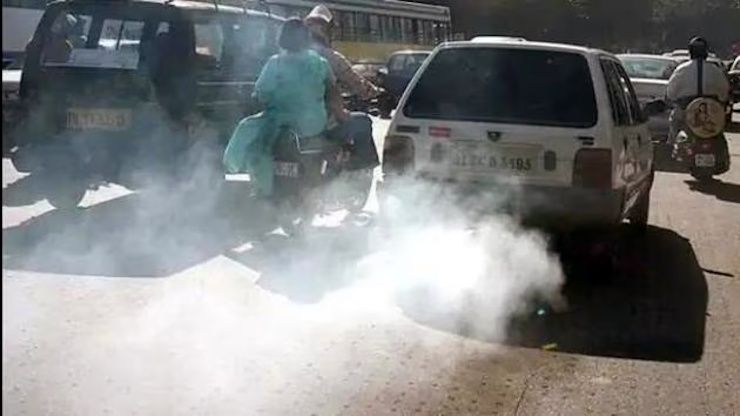Fuel Ban For Vehicles Without PUC: Delhi Fuel Dealers Worried Of Arguments, Fights


From July 1, fuel stations across Delhi will be required to deny petrol and diesel to all vehicles that lack a valid Pollution Under Control (PUC) certificate. While the intention behind the new rule is to clamp down on polluting vehicles, fuel dealers across the city are now voicing serious concerns, not about enforcement logistics or stock management, but about their personal safety.

According to multiple pump operators, tensions have already begun simmering. Many worry that turning away angry motorists in the peak of summer, especially in high-traffic zones, could lead to arguments, physical altercations, and even mob-like confrontations. Unlike traffic police who issue fines with legal backing and protective presence, fuel station staff say they are being asked to enforce a rule that could provoke hostility without having the tools or authority to manage the consequences.
The Delhi government’s decision to link fuel refilling with a valid PUC certificate stems from growing environmental concerns. Vehicular emissions are one of the major contributors to Delhi’s chronic air pollution, especially in winter months. By restricting fuel access for vehicles that don’t meet basic emission norms, the government aims to force compliance and weed out older, more polluting models.
But the responsibility for ensuring compliance is now falling squarely on the shoulders of pump operators, most of whom are privately owned franchises or run by independent dealers. These are not trained enforcement officers. And there’s no extra security, legal training, or emergency response mechanism in place for when a vehicle owner reacts badly to being denied fuel.

Some dealers have already reported instances of verbal abuse and intimidation from customers during earlier drives when PUC checks were randomly enforced. The fear is that once the new rule kicks in citywide, the frequency and intensity of such conflicts will rise dramatically.
Delhi has over 400 petrol stations, and on a busy day, many of them service hundreds of vehicles. Dealers say even if 10 percent of these customers arrive without a valid PUC, the number of potentially tense interactions per day could be in the thousands. The rule requires fuel station attendants to verify PUC status before fuelling up, either manually or through automated license plate checks, where technology is available.
But even with a QR code or app integration, the challenge lies in communication. What happens when a customer refuses to accept the refusal? What happens if they claim their PUC is valid, but the system says otherwise? These are the grey areas that dealers fear could spiral out of control in real time, especially during rush hours.
Fuel dealers are not opposing the move in principle. Many agree that emission checks are important, and that tighter enforcement is long overdue. What they are asking for is a clear framework that protects them while doing the job they are now expected to perform.
They want visible police presence at busy pumps, especially in the first few weeks of implementation. They are asking for helplines that can offer real-time support if things get out of hand. And most critically, they want clear instructions on what to do if a customer turns aggressive, refuses to leave, or threatens violence.
There is also a growing demand that the government run an aggressive awareness campaign in the run-up to the July 1 deadline. Signboards at entry points, social media reminders, and even SMS alerts have been suggested to reduce the shock factor at the pump.
Ultimately, the success of this policy will depend not just on fuel dealers enforcing it, but on how well-informed vehicle owners are. In a city where digital literacy is uneven and compliance culture is often weak, springing enforcement without adequate warning could backfire.
For now, pump operators are stuck between government policy and public anger. They are being asked to do the right thing, but in the absence of clear protocols or safety nets, they’re bracing for the worst. The weeks ahead will reveal whether this move can drive real change or simply spark roadside chaos.